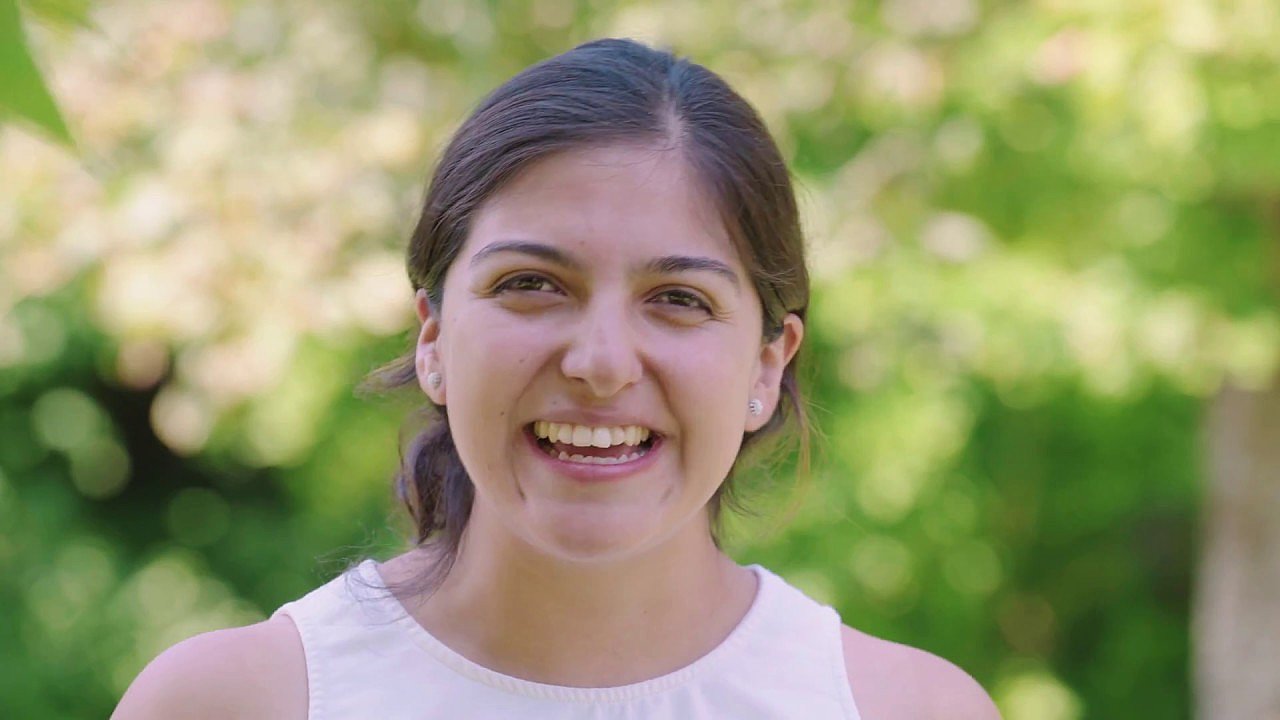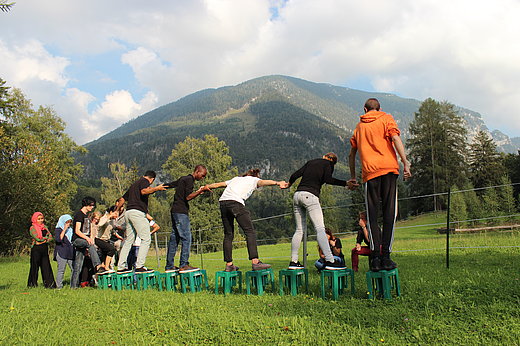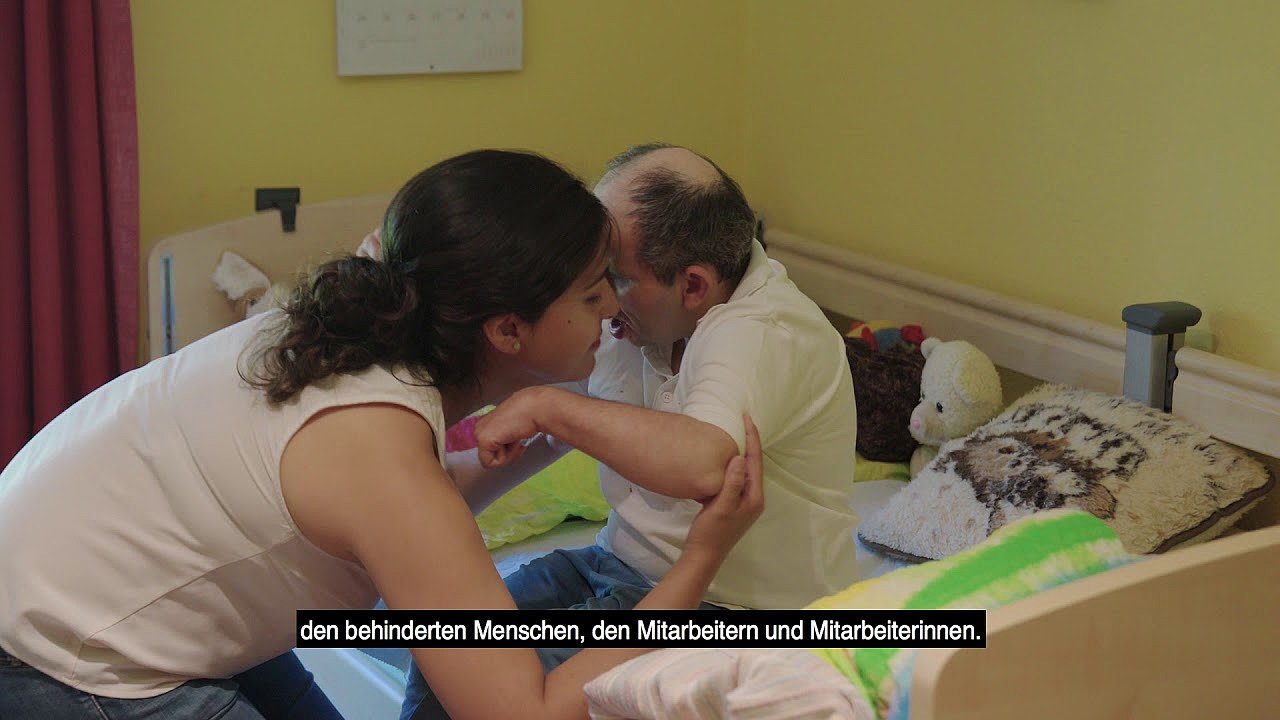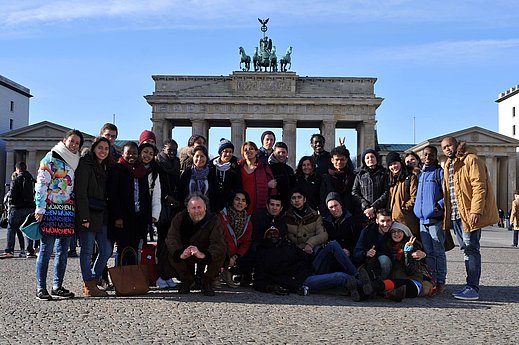One year of voluntary service in Germany
You are from abroad and would like to volunteer in Germany for one year? Then you have come to the right place. On this page you will get an overview of the incoming program, which is exactly for people like you from abroad. You will learn everything about the benefits, requirements, areas of work and information on how to apply. Have fun!
You have questions or need more info? Feel free to contact us. We are happy to support.
Incoming-Program: All you need to know
If you want to do a voluntary service in Germany, you certainly have many organizational questions. What are the requirements? When does the voluntary service begin? What benefits will I receive? We will clarify the most important questions here so that you can start your stay in Germany well prepared. Please read everything carefully. If something is still unclear afterwards, feel free to contact us.
Are you ready to take the big step and come to Germany? Here are all the formal and personal requirements you need to fulfill in order to participate in the incoming program:
- You are at least 18 years old
- You are not living in Germany at the moment
- Your German level is at least A2 or even better B1 and you are willing to improve your German during your voluntary service.
- You have done an internship of at least two weeks in your home country. The internship should be in the same field in which you would like to work in Germany. Please send us an internship certificate together with your application.
- You are open to get to know the German culture and to take on new tasks.
- You are willing to work full time in a social or educational institution for one year.
- You need a visa for Germany if you come from a country outside the European Union (EU). Once we have accepted you for volunteer service, we will send you the documents for your visa application. Getting a visa can take two to three months, depending on the country, and is unfortunately often not easy. We will support you where necessary and where we can.
- The incoming program starts twice a year: once in August/September and once in February/March.
- Your volunteer service usually lasts 12-18 months and in exceptional cases two years.
- The volunteer service in Incoming is a full-time position, which means that you work 38.5 - 40 hours per week.
- You have a legal right to vacation
- You have 25 days of educational seminars with your fellow volunteers. Read more about seminars here.
You'd like to go to Germany, but you're not sure if you can afford a volunteer service at all? Don't worry, there are some financial advantages for you:
- You will receive a pocket money of at least 200 Euro per month.
- Your organization will organize your accommodation for you: either you will live in a room in the volunteer center or with a host family.
- You will receive meals (food and drinks) from your organization or financial support.
- You have health insurance, accident insurance, liability insurance and possibly social insurance in Germany during your voluntary service.
Unfortunately, funding for travel to and from Germany is only available in some programs. In these programs we have only a few places. So most volunteers have to finance the travel to Germany and back by themselves. Financial support (scholarship) is possible.
Explore the world. Transform yourself.
Areas of Service
You have the opportunity to get involved in various Waldorf educational institutions. Here you will get an overview of all areas.
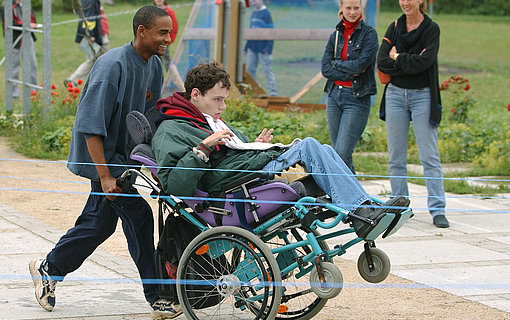
Social therapeutic facilities are communities in which adults with disabilities (and with assistance needs) live and work together with people without disabilities. The goal is for each person to live as freely and self-determined as possible. You will help in the areas of care, assistance in daily activities, in the household and help organize parties, theater and concerts.
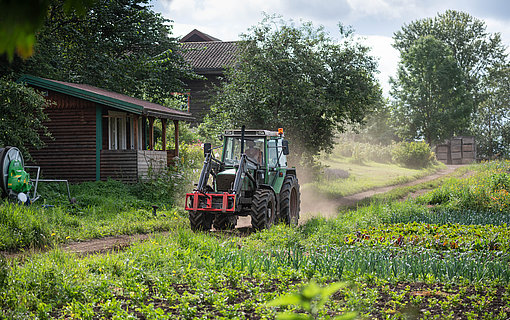
The remarkable thing about Biodynamic Agriculture is that fact that it is integrated into the ecological cycles and cycles of nature. In the voluntary service you spend a lot of time outdoors - in summer and winter, you do a lot of manual work, without large machines, you help with planting, harvesting and storage and feed and care for the animals.

Curative education is dedicated to children and adolescents with disabilities (and with assistance needs). You accompany students throughout the school day, in leisure activities as well as in care and nursing. Or you help with practical learning in various workshops, home economics, agriculture or horticulture.
You get to know life, language and culture in Germany
You will gain valuable experience abroad, get to know German culture, people and everyday life. You can also improve your German language skills.
You get involved socially and do good for others
No matter which area of work you choose one thing is clear: You become active and do something good for other people. Whether it's in kindergarten, at school, or helping the elderly - your support makes a big difference in the lives of others.
You get pocket money and accommodation
During your voluntary service in Germany, you will not only be provided (or financially supported) with accommodation and meals, but also get a monthy pocket money of at least 200 euros. In addition to that, you are covered by health, accident and liability insurance.
You discover exciting professions
There are so many things you could imagine doing professionally later on? But you have no idea what it really looks like and what to expect? With a voluntary service, you can get to know various occupational fields up close - you'll be right in the middle of it all, working hands-on. And who knows, maybe you'll discover your dream job?
Which country are you from?
Contact our partners in your home country
If you are from Argentina, Brasil, Georgia, Colombia, Kyrgyzstan, Namibia, Senegal or South Africa, you need to apply for a volunteer service in Germany at one of our partner organizations in your home country. Please contact the organization responsible for you to learn more about your individual requirements.
If you are from Cameroon or Tajikistan, unfortunately, we cannot offer you a volunteer service.
All others can apply here.
Do you feel reassured and ready to do a voluntary service in Germany? That's wonderful. The next step is to fill out your application form. If there is no partner organization in your country (see list above), you can apply directly to the Friends now.
We are looking forward to meeting you!




